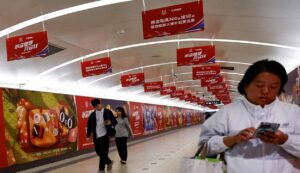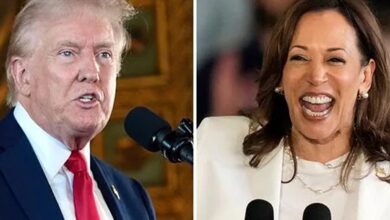The world’s biggest shopping event takes place every year in China and it is called Singles Day, know why
Is it Black Friday? No. Is it Cyber Monday? Not at all. Is it Prime Day? Not at all. Every year, China hosts Singles Day, the largest shopping event in the world.

This year’s Singles Day sales season was the longest ever, starting on October 14 and ending on November 11. It started as a holiday to celebrate being single as a contrast to Valentine’s Day and has now expanded into a weeks-long internet shopping carnival.
WHEN WAS THE SINGLES DAY IDEA FIRST GENERATED?
In 1993, Nanjing University in China came up with the concept for Singles Day, which was then known as “Bachelor’s Day.” In addition to planning social events and parties, solitary individuals celebrate the day by treating themselves to gifts and presents.
WHAT IS THE AMOUNT SPENT BY CONSUMERS?
According to data source Syntun, the total amount of products sold during the shopping extravaganza, commonly referred to as “Double 11,” last year was 1.14 trillion yuan ($156.4 billion).
According to statistics from Adobe Analytics, that is more than four times the $38 billion that American consumers spent over Cyber Week, which ran from Black Friday to Cyber Monday, last year.
Black Friday, the largest shopping day of the year in the US, occurs the day following Thanksgiving Day, and Cyber Monday comes just after.
However, despite Singles Day sales hitting all-time highs, growth has been decreasing, with last year’s 2% increase being the weakest increase ever.
With the growth of other shopping festivals in China, such as the midyear “618” sales, which are the second-largest in the nation and suffered a decline in total sales for the first time this year, the event has lost some of its novelty in recent years.
According to independent e-commerce specialist Lu Zhengwang, “Vendors are becoming more rational, profit is the core pursuit, gross merchandise value is not.” “However, profit is hard to reach, the competition is still super intense, and only the cheaper price sells.”
WHICH PRODUCTS AND MAJOR BRANDS DO SHOPPERS BUY?
China’s main e-commerce platforms now participate in “Double 11,” which Alibaba launched in 2009 to attract online customers with sales and discounts.
JD.com joined in 2012, and Pinduoduo, controlled by PDD Holdings, has grown to be a major competitor as well. Both platforms compete with Alibaba’s Tmall and Taobao by providing low-cost goods.
Last year, consumers spent less on luxury or expensive items like furniture and home appliances and more on essentials like Kleenex, hand soap, instant noodles, and pet food.
With the support of a nationwide trade-in subsidy program worth 150 billion yuan that was launched in July to encourage consumption, home appliances are probably going to perform better this year than they did last.
Prior to the start of the Singles Day sales festivals in late October, a Bain poll found that 49% of Chinese consumers were enthusiastic about the occasion, compared to 53% in 2023 and 76% in 2021.
In 2024, almost 75% of those surveyed said they would spend the same amount or less on Singles Day marketing.
HOW IS BLACK FRIDAY DIFFERENT FROM SINGLES DAY?
According to Adobe, during the major Black Friday and Cyber Monday shopping seasons last year, American consumers purchased smart watches, toys, and video games.
Based on statistics from Adobe Analytics and consulting firm Bain, Singles Day had average yearly growth rates of around 34% from 2014 to 2021, while Cyber Week had an average increase of 17%.
WHICH OTHER COMPANIES AIM TO ADVANTAGE?
Numerous American businesses, like the clothing manufacturer Nike, the cosmetics company Estee Lauder, and the consumer goods behemoth Procter & Gamble, are well-represented on Chinese e-commerce sites like Tmall and JD.com.
Since the country’s severe COVID-19 limitations ended in late 2022, aggressive discounting has been a defining feature of Chinese shopping festivals. Low prices are used to create a consumption resurgence that hasn’t really materialized.
Platforms this year provided discounted pricing on Apple iPhone 16 models; Tmall, for example, was selling the phone for up to 1,600 yuan with subsidies. Similar savings and a complimentary year of AppleCare+ were offered by JD.com.
In an October call with investors after the company’s results, L’Oreal CEO Nicolas Hieronimus said that it was premature to comment on “Double 11.”
“11.11’s length and duration have been increased. With a 10-day extension, it will be the longest 11.11 ever, according to Hieronimus. “We are determined to have our brands in the top rankings of this event.”





